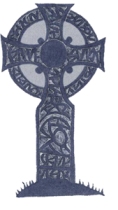It is impossible to speak English without speaking Greek, as Dr. John Karalas demonstrates in the following paragraph from The Genesis of Classical Drama, composed entirely of words of Greek origin.
The prologue, the theme, and the epilogue comprised the trilogy of drama while synthesis, analysis, and synopsis characterised the phraseology of the text. The syntax and phraseology used by scholars, academicians, and philosophers in their rhetoric had many grammatical idioms and idiosyncrasies.

Our intellectual debt to Greek is without question, and even the Romans bowed handsomely to Greek culture. They Latinized a huge number of terms, especially those relating to the refinement of thought, expression, rhetoric, and language generally. A nicely untranslatable example of what linguists call "a rhetorical device" is the word aaismus, from the Greek akkismos, meaning "coyness" or "affectation." This refers to how we may refuse something in a slightly dramatic way to show that we would really rather like to have it."Oh, no, I couldn't possibly take the last piece, delicious as it was . . . and my favorite dessert of all. No, I simply couldn't. Well . . ."
The ancient Greeks not only had many ideas and concepts that were quite particular to them and not easily translated into modern terms, but also had a long tradition of uniquely Greek feelings. The Romans, in their turn, gave us town planning, sophisticated techniques of construction, military organization and, in due course, carried by the Christian church on the back of their Empire, the European inter language of Vulgar or Medieval Latin. It was this that preserved the linguistic influence of both ancient Greek and Latin in the West to the time of the Renaissance and into this day.
We often forget that other traditions persisted throughout those centuries of the so-called Dark Ages, a time nonetheless of extraordinary cultural vigor and richness. Who thinks of the Visigoths as anything other than barbaric invaders of the Roman Empire? Yet their exquisite art and architecture is a bridge between the classical and the medieval, preserved but overlooked in their ancient kingdoms of northern Spain. One culture in particular that is now reclaiming its rightful place in history is the Celtic tradition, including Gaelic and other Celtic languages.
The Celtic church, at its height around the fifth century A.D, filled the vacuum left by the collapse of Roman rule, sending its missionaries to establish centers of learning all over Europe. It has even been persuasively argued that the Celts "saved civilization." We shall see from our Gaelic untranslatables just how enduring their world vision was, nourishing a way of life that endured right up to the twentieth century in the farthest fringes of Europe.
Linguistically speaking, at the root of all these great traditions stands the legendary pre-Christian civilization of ancient India, with its profound culture explored and expressed through the medium of Sanskrit, and subsequently distributed all over Europe and Asia Minor. All the Indo-European family of tongues owe their origin to Sanskrit and its civilization. We shall see how some of the highest and deepest mysteries of existence found untranslatable names in this language.